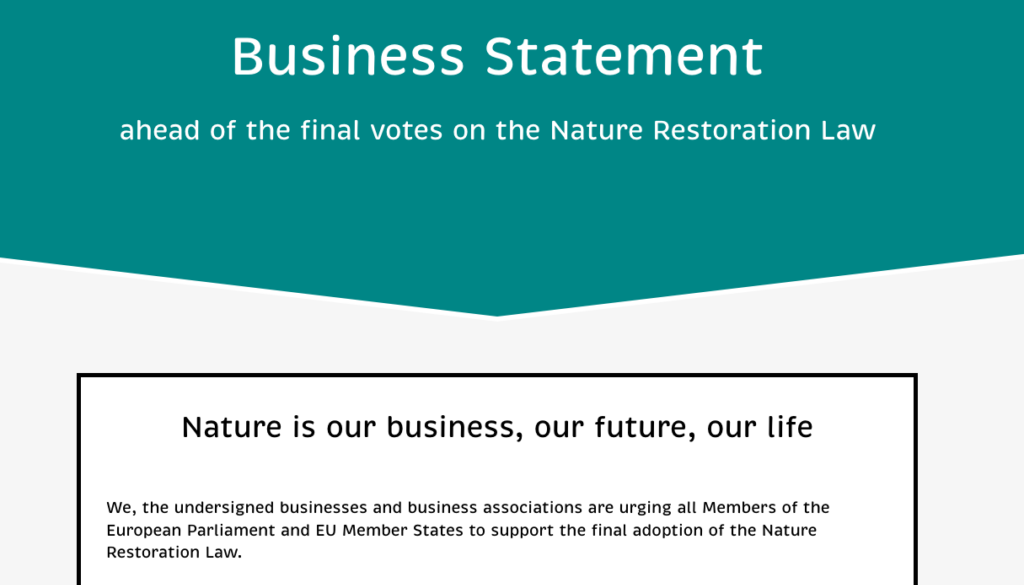In view of the upcoming vote on November 29th in the ENVI committee on the Nature Restauration Law, LIFE has joined forces with a coalition of organisations to share a Business Statement to urge all Members of the European Parliament and EU Member States to support the final adoption of the Nature Restoration Law.
Read the full statement signed by LIFE here.
“The EU Nature Restoration law is a generation’s opportunity to take concrete and effective action to reverse the biodiversity and climate crises by restoring EU land and sea areas at large scale. We, the undersigned businesses and business associations, are calling for the urgent adoption of an ambitious and legally-binding EU Nature Restoration Law to bring nature back to Europe. The EU Nature Restoration Law will be a key tool to tackle our climate and biodiversity crises and to guarantee the long-term sustainability and viability of our society and economy.”
Where does the Nature Restauration Law stand?
As a reminder, after the Council agreed on its position on the law in June this year and the Parliament in July, the interinstitutional negotiations (also called ‘trilogues’) on the final text kicked off. On the 9th of November, the negotiators from the Parliament, Commission, and Council reached a provisional deal on the final text of the law. While we are relieved to see this agreement, given the fierce opposition to the law witnessed earlier this year, we wish it was more ambitious and in line with what science tells us is necessary to tackle the climate and biodiversity emergencies.
To become reality (which is needed to not to delay the much-needed restoration work), the legislation needs two more supportive votes in the European Parliament, in the ENVI Committee on the 29th of November and during the plenary vote (likely early next year), and final adoption by a majority of the EU Member States.
Earlier this year, the European Commission published a Communications package (“A Pact for Fisheries and Oceans) outlining proposals for addressing decarbonisation (Communication on Energy Transition), biodiversity and habitat restoration (Communication on a Marine Action Plan), a Communication on the implementation of the Common Fisheries Policy) and a report on the Common Organisation of the Market (COM) regulation. LIFE is supportive of this package, given that it is a first step towards garnering consensus on the necessary actions to be taken in European waters in line with international obligations and European Green Deal targets. LIFE’s response can be consulted here.




